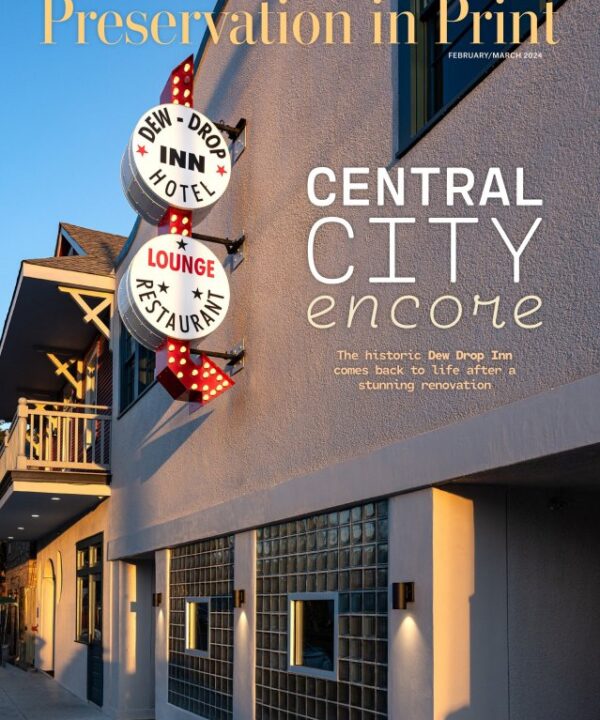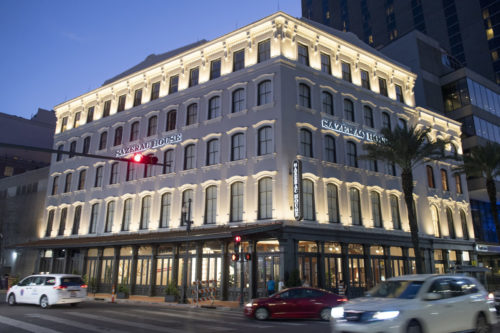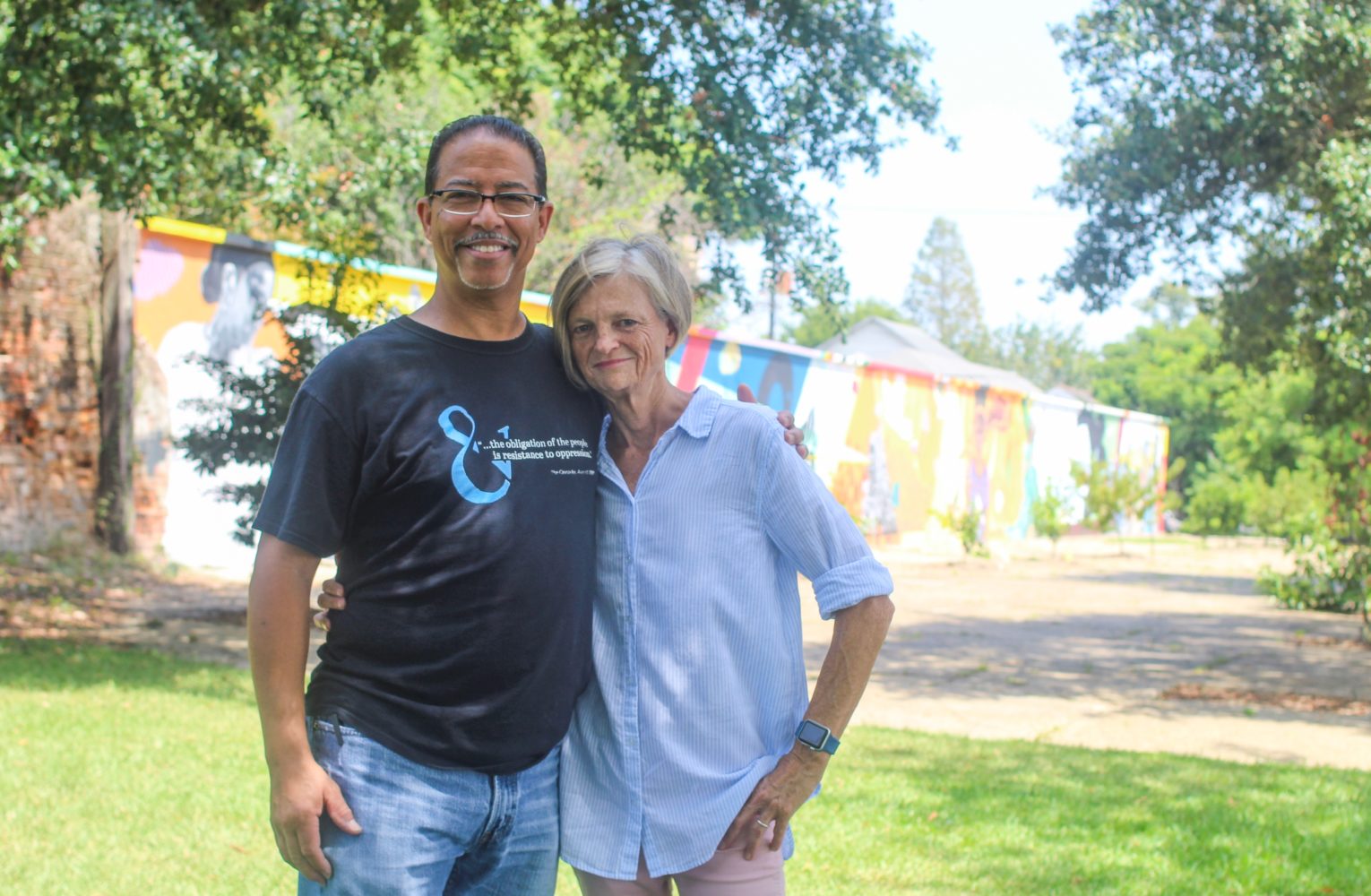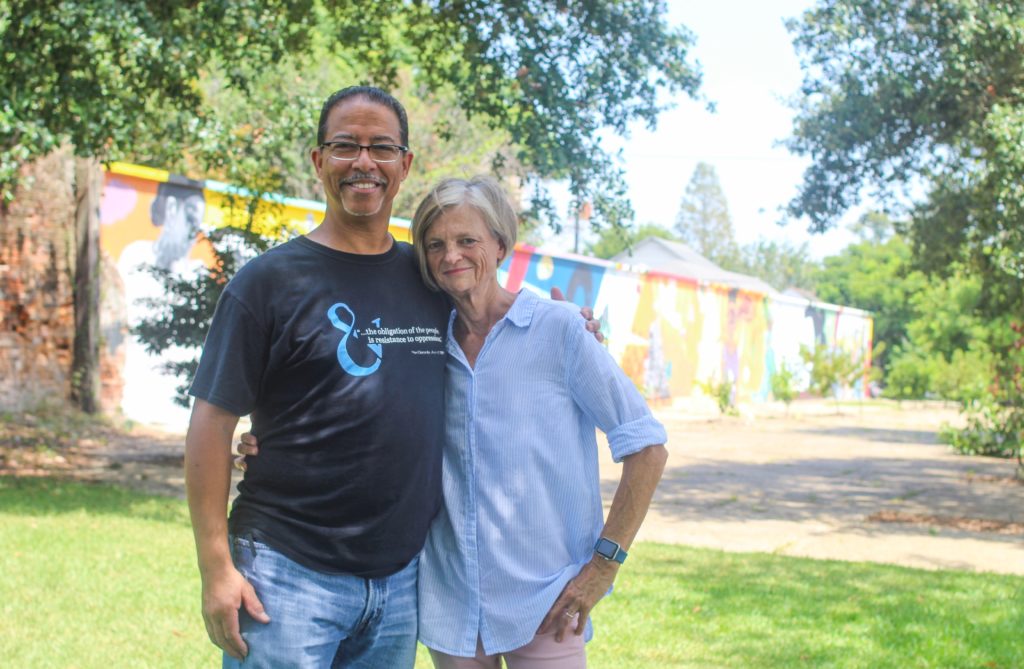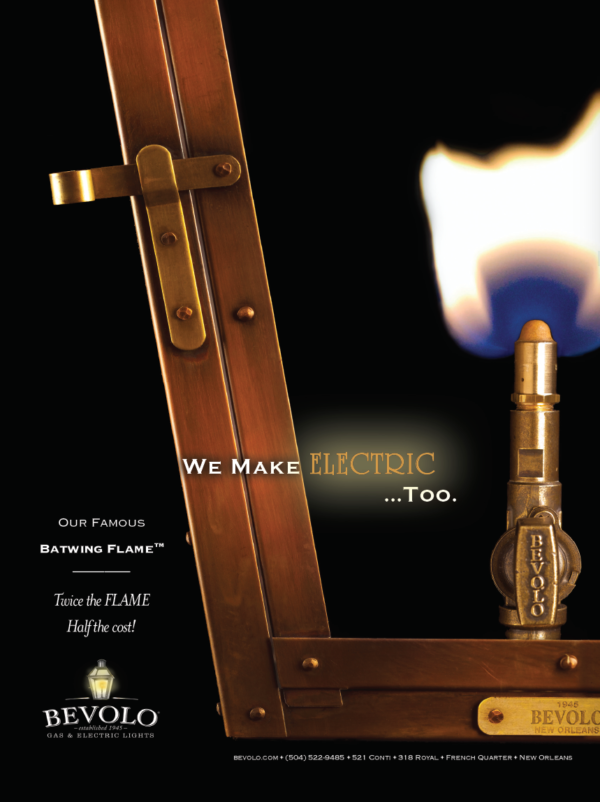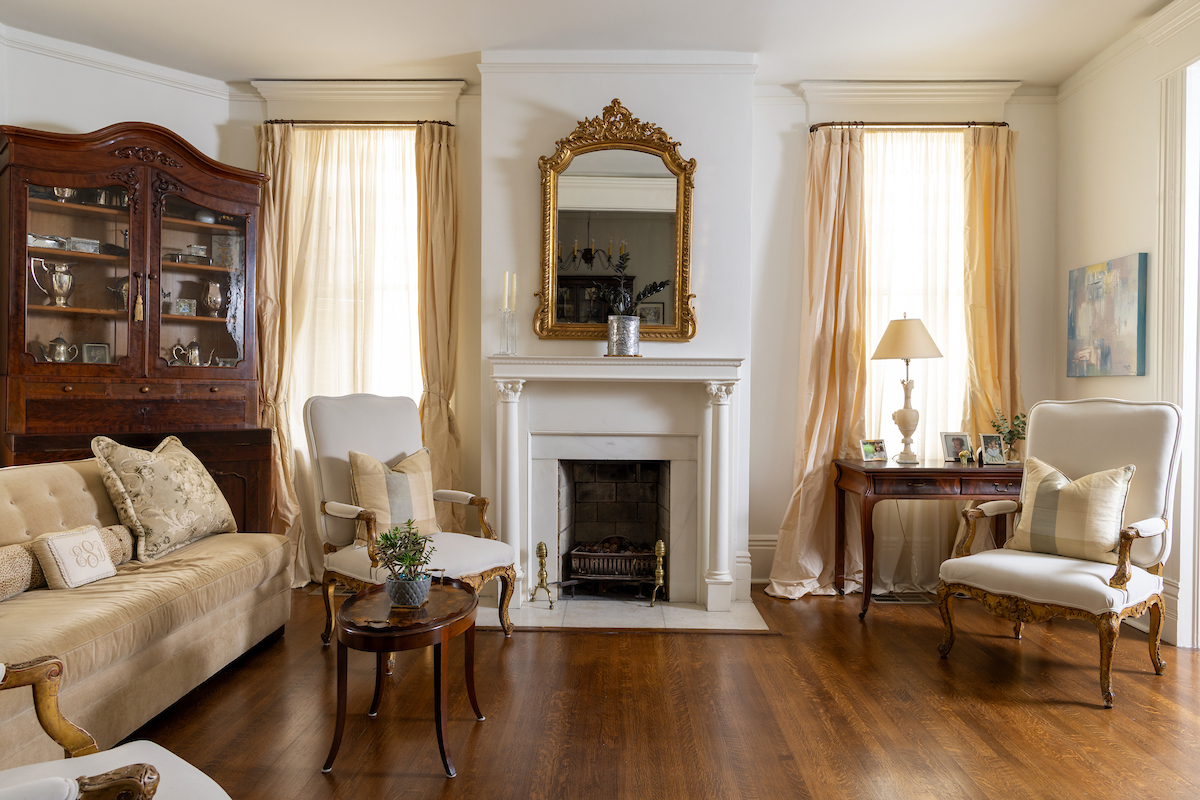This story appeared in the September issue of the PRC’s Preservation in Print magazine. Interested in getting more preservation stories like this delivered to your door each month? Become a member of the PRC for a subscription!
The two are, some might argue, the unlikeliest of work partners and close friends. But for Phoebe Ferguson, descendant of Judge John H. Ferguson, and Keith Plessy, descendant of Homer Plessy of the landmark 1896 Supreme Court Plessy v. Ferguson case, their friendship was natural and almost immediate.
Ferguson, who worked for many years as a filmmaker in New York City, didn’t know until 2003 that her great-grandfather was the Judge Ferguson in the case that upheld the constitutionality of racial segregation laws for public facilities. After she found out, she researched him and the case, which led her to local historian and author Keith Weldon Medley, who has written several books on civil rights and African-American heritage.
When Ferguson was visiting New Orleans the next year, Medley invited her to the Preservation Resource Center for a book signing of his latest work, We as Freemen: Plessy v. Ferguson.
When Ferguson walked through the PRC’s doors, Medley said, “Welcome! There’s someone I want you to meet.” Keith Plessy stepped up and smiled.
“He said, ‘Hi, I’m Keith Plessy,’ and I almost fainted,” Ferguson said. “I think I said something like, ‘Hi I’m Phoebe, and I’m so sorry for the ruling and for slavery and for everything!’ But Keith was so calm and wise, he just smiled.”
“I think I responded by saying, ‘We weren’t even born yet, please don’t apologize,’ ” said Plessy, a local artist. “It’s no longer Plessy versus Ferguson. It’s Plessy and Ferguson.’
And thus a friendship began that led to a foundation in 2009. The Plessy & Ferguson Foundation teaches the history of the Plessy v. Ferguson case and why it’s still relevant today. Their work focuses primarily on education and marking sites of significance.
Ferguson moved back to New Orleans in 2007, and for a decade now, the dynamic duo has spoken in countless classrooms, at universities and in public settings.
“We have to teach the history, and to train youth and train young lawyers” to uphold the principles that Civil Rights activists fought and died for, Plessy said. “A Tuskegee airman once told me, ‘Life is like a baton in a race. Whatever you’ve done in your life, you share it. You have to pass it on, else it’s a waste.’ ”
“When we go to schools with young kids, we embody our ancestors, because it’s hard for them to understand descendants,” Ferguson said. “We boil the case down for them to right and wrong. We have an amazing legacy to share, and we tell kids that they, too, will have a legacy, and that it’s important to think about that while you’re young — that in your life you contribute your spirit, effort and service in order to help make change, and that they, too, can be history makers.”
The Plessy & Ferguson Foundation also puts historical markers at sites of significance so that all can know the legacy of the African-American community and those who fought for Civil Rights. The group has put up plaques at the Pythian Temple; McDonogh 19 School; Valena C. Jones School; and the site where Homer Plessy boarded the train and was arrested in 1892 at Press and Royal streets — now known as Homer Plessy Way.
The foundation also is a charter member of a new group, the New Orleans Arts and Culture Coalition, which brings together organizations to serve as a coordinated voice for the recognition and promotion of civil and human rights, history and culture in New Orleans. “We are coming together so that our smaller partners can have a larger support system,” Ferguson explained. “We need to make it known that New Orleans is a cradle of the Civil Rights Movement.”
The Plessy & Ferguson Foundation’s effort to mark history, both through plaques and through education, is vitally important to recognizing the hard work, the suffering and the achievements of New Orleans’ African-American community, which for so long sought equality. This city is fortunate for Ferguson and Plessy’s friendship, their foundation and the work they do daily to remind us of our history — right and wrong.
Photo by Liz Jurey.


